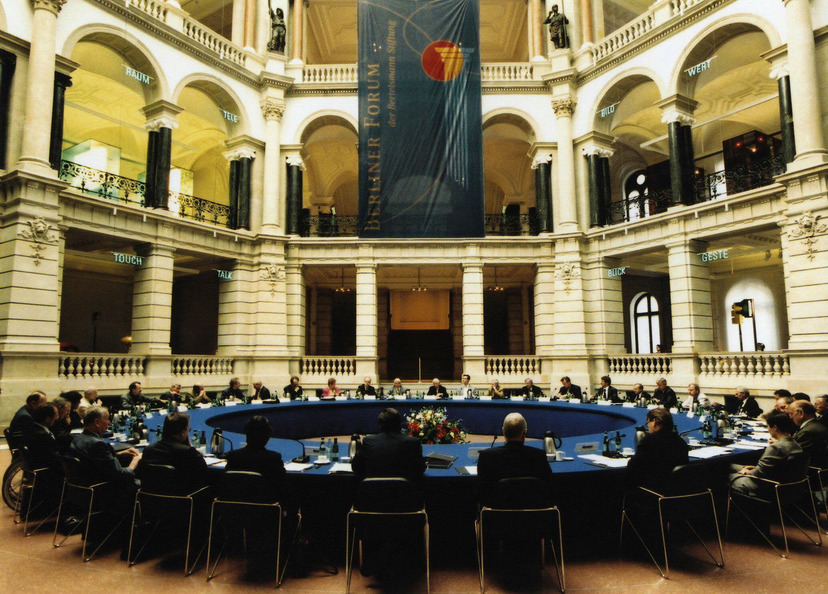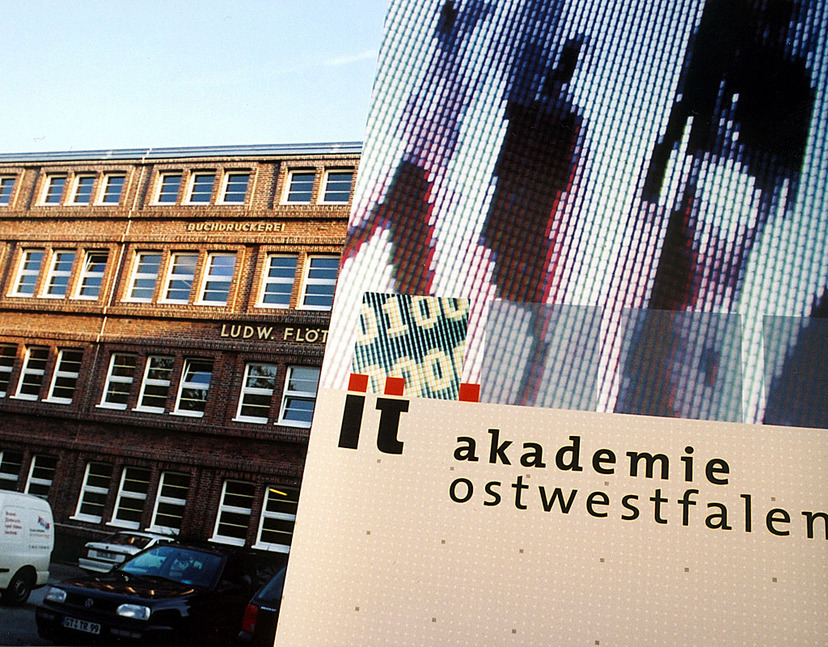Foundation governance reorganized
Reinhard Mohn reorganizes the Bertelsmann Stiftung's committees on November 1, 2000, taking over the chairmanship of the five-person Executive Committee of the Board, which heads the foundation's Board of Trustees. He also becomes chair of the Board of Trustees. The Executive Board is the Bertelsmann Stiftung's executive body, and the Board of Trustees handles consulting and management functions. With Dr. Andreas Schlüter's departure as executive director on October 30, 2000, a management committee chaired by Dr. Gunter Thielen assumes responsibility for project work. Gerd Schulte-Hillen becomes deputy chair of the Executive Committee of the Board. The other members of the Executive Committee are Liz Mohn and Prof. Werner Weidenfeld.
2000 Carl Bertelsmann Prize: Reforming the Healthcare Sector
If it were a patient, the German healthcare sector would be in poor condition. Although the healthcare sector has been seriously ill for some time, decades of treatment attempts have fallen short. Never mind that the causes have long been known. Never mind that politicians have introduced mild structural remedies and even are finally trying to treat the causes rather than the symptoms. Despite all their efforts, mounting costs seem out of control, while the revenue side comes under increasing pressure. What is needed are specific solutions to specific future questions. The decision by the Bertelsmann Stiftung to award this year's Carl Bertelsmann Prize for innovative international healthcare policy models thus also serves the purpose of increasing the pressure for reform on decision makers here in Germany. Learning from abroad – this is a reasonable hope, and entirely justified, considering the tremendous response to the prize winners of the past 12 years in the fields of education, labor negotiations and higher education. This year, the jury selects two winners for the Carl Bertelsmann Prize. In each case, a particular healthcare sector is recognized, not the healthcare system of the country as a whole. The Swiss Department of the Interior is awarded the prize for introducing a new health insurance statute that reconciles competition and principles of solidarity. In the Netherlands, the Association of Dutch General Practitioners is honored for its unique efforts to improve the quality of care. These primary care physicians find it particularly difficult to stay informed about the latest research and treatment methods.
1st Berlin Forum
Content

Marc Darchinger
The first Berlin Forum, "Prospects for the social market economy in Germany," is held in Berlin on May 29, 2000.
The Berlin Forum aims to provide decision makers and experts in politics, business and academia an outstanding discussion forum for current reform projects and issues.
A new event format for the Bertelsmann Stiftung, the Berlin Forum on "Prospects for the social market economy in Germany" is held on May 28–29, 2000. Through these high-level forums, the Bertelsmann Stiftung successfully establishes a presence in the nation’s capital. The goal is to participate directly in shaping Germany's "Berlin Republic" with the foundation's reform ideas and momentum. The event gives a select circle of decision makers from politics, business, academia and civil society the opportunity to discuss current reform issues in the "Berlin Republic" in an off-the-record forum. The event’s round-table format permits an open and active conversation about domestic policy challenges for German society.
IT Academy East Westphalia founded
In the same year as it is founded, the IT Academy offers its first course. The Bertelsmann Stiftung holds 90 percent of the shares, and the East Westphalian Chamber of Commerce, Bielefeld holds 10 percent. Ernst Schwanhold, North Rhine–Westphalia minister of economics and small and medium-sized businesses, officially opens the Academy in February 2001. The goals are to promote and publicize research and provide training and continuing education in all fields of information technology. The Academy is unique in that its training program is strictly demand-oriented: The content of each course is developed to meet the requirements of specific IT positions. In 2004, the Academy changes its name to Förderung der Informations-Technologie gGmbH and then becomes a GmbH & Co.KG.



